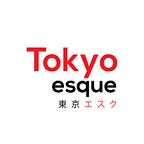Mindful drinking: The rise of alcohol-free alternative beverages in Japan
By Melissa Francis
Tokyoesque are experts in Europe-Japan relations and provide clients with unique cultural insights that can be used to accelerate business growth across the globe. In this post, Tokyoesque looks at how alcohol brands are maintaining success in an increasingly ‘dry’ Japan.
—
There is a movement towards greater consideration for non-alcoholic drinks that meet the changing needs of Japanese consumers. Unlike other regions which have maximum legal units for drivers, in Japan it is completely illegal to drive after having imbibed any amount of alcohol. That said, a large proportion of those living in metropolitan areas opt to travel via public transport. In more recent years, there has been an upturn in the number of zero and low-alcohol drinks launched by major beverage manufacturers such as Kirin, Suntory, Asahi, and Sapporo. These primarily fall into the sub-sector of ‘beer’, but there are also some examples in other areas including chu-hai, whiskey and sake.
In this post, Tokyoesque lays out some of the recent key releases across two of the most popular categories; beer and chu-hai.
Beer
In 2018 Suntory released an upgraded version of one of its existing non-alcoholic beer lines, called ‘ALL-FREE ALL-TIME’. The original ALL-FREE canned beer has no alcohol, no calories and no gluten, and following its success in Japan, the product has seen expansion into international markets including the US. The new ALL-FREE beer, however, was presented as a transparent liquid in a plastic bottle, much like a soft drink.
Based on the results of smell analysis, the central idea was that office employees could enjoy the refreshing taste of beer even during working hours. 700,000 bottles were distributed across Japan for sampling purposes prior to launch. But even with the product being devoid of alcohol, the hoppy aroma could still be detected on their breath. This might come across as off-putting to others, so this wasn’t necessarily a flawless proposition.
Kirin’s Zero Ichi included higher levels of wheat for a ‘refined’ and ‘elegant’ taste. The beer performed well upon its initial release in 2017, with the sales targets being increased twice due to unanticipated popularity. Sales of Asahi’s Dry Zero reached a record figure of 6.97 million boxes in 2017, and were projected to reach 7.18 million boxes during 2018. Despite the Asahi Dry brand being primarily marketed towards a male demographic, in 2019 the company released an offshoot product called Dry Zero Spark. This combines the familiar taste of the original beer with a sparkling beverage, and the advertising shows both male and female consumers enjoying it. This is one example of how brands can diversify their offerings to be more inclusive and reach new audiences.
Sapporo released a non-alcoholic version of their bestselling Mugi no Kutsurogi beer, aiming to shift 800,000 boxes during 2018. The campaign is worth noting. Product sales can typically be quite biased towards the consumer’s gender, and it’s common to see drinks especially marketed towards either men or women. Instead, Sapporo chose to make the larger 150ml version of the drink ‘for everyone’ after receiving positive feedback from consumers of both genders. As a result, the packaging featured colour-coded visuals with intertwining pink and blue ribbons.
Chu-hai
Chu-hai is a popular type of alcoholic beverage, made with either shochu (Japanese distilled drink typically less than 25% ABV) or vodka as a base, diluted with carbonated water and including various fruit flavourings, with citrus being a common option. It is typically sold in cans at convenience stores and supermarkets. The term is a portmanteau of the chu (liquor) from shochu and hai from ‘highball’, which is usually associated with whisky.
Suntory operates a zero-alcohol chu-hai brand called Non Aru Kibun (short for ‘non-alcoholic mood’). Not only do the drinks contain no alcohol, they are also zero-calorie and sugar-free. In addition to the existing variants available, the company has released a ‘DRY’ series for consumers who want more of a bitter taste to their chu-hai, and less of the sweetness the drink typically leaves behind. The commercials for Non Aru Kibun really emphasise the fact that even though the products are alcohol-free, the taste is just as refreshing as regular chu-hai.
There are a number of similar offerings from across major brands. CHOYA released a range of fruit-based soda drinks designed to be similar to umeshu (plum wine) cocktails. One is a more local flavour, yuzu, a common type of citrus fruit used widely in Japanese cuisine. Asahi offers Asahi Style Balance, which is a sparkling drink meant to emulate a highball, but is more similar to a lemonade combined with other fruit flavourings. Foresty is a brand that claims its chu-hai offering elicits the refreshing feeling of walking through a forest.
It isn’t alcohol, but it feels like alcohol
Alongside the array of no-alcohol versions of regular favourites, there is also a growing demand for premium soft drinks that on the one hand resemble the luxurious nature of alcoholic drinks, but are entirely different. For instance, local drinks company Royal Blue Tea specialises in offering premium tea served in wine bottles. These vary in terms of their strength and flavour and are designed to be paired with related dishes in the same way as wine or sake. The teas have even been served to politicians and other key public figures when they’ve visited Japan on official business.
Get to know the Japanese drinks market before diving in
If you’re a foreign brand looking for a foothold in the Japanese drinks market, we understand it can be daunting. But it’s also beneficial to have solid insights that can inform your decision-making process. Whether you’re looking to make an initial entry into the market, revitalise your brand’s existing presence in Japan, or localise your overall strategy to resonate with Japanese consumers, Tokyoesque can work with you to realise your objectives.
